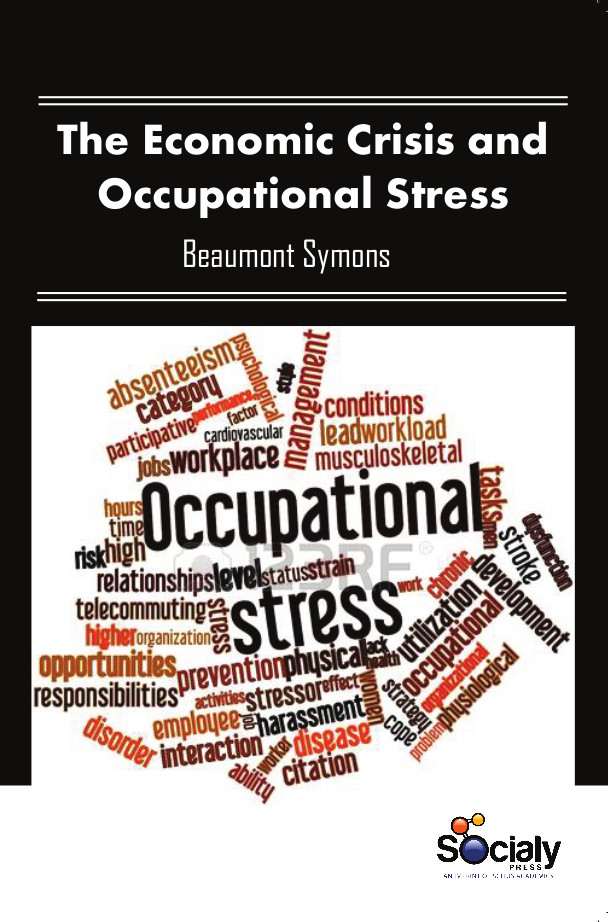Stress studies are becoming more and more attention nowadays, the financial crisis and recession of 2008 around the world further contributed in increasing higher levels of stress among employees, particularly in the corporate context. Occupational stress is increasing due to globalization and global economic crisis which is affecting almost all countries, all professions and all categories of workers, as well as families and societies.
This Book, The Economic Crisis and Occupational Stress, is focused on showing the economic crisis impact on the behavior of employees such as absenteeism and the missing hours from the schedule. Moreover, overload work as effect of the employee’s fear of being fired led to a worrying change in their physical and psychological health and to a reduced work satisfaction.
Stress in an organization is very common in present day industries. In many job situations, high levels of stress are an integral and largely unavoidable component of the work. The need to cope with complexity, ambiguity, conflict and competing demands is a part of organizational life among individuals occupying different positions. Organizations are often unnecessarily stressful and have a negative impact on individual’s physical and mental health. The organizations, to make themselves efficient in utilization of resources, have gone through entire restructuring, layoffs, downsizing, and mergers. This has resulted in unstable employee-employer relationship which has caused a great deal of stress among employees. There is no such thing as a stress-free job in the world. Many organizations want to reduce and prevent the employee stress because they observe that it is a major drain on corporate productivity. Nobody is free from stress and it is not harmful always. In small quantities, stress is good; it can motivate us and help us to become more productive, but too much stress or a strong response to stress can be harmful.
In this book all experiences of jobs are discussed which affects human minds and bodies. The book also discusses the risk management at workplace, prevention of stress and instructions to stress management. A perceptive and exhaustive account of how the economic crisis has outspread globally is presented and the reflective psychological impact that this recession has had on the workplace examined.
This Book will be of important for students and researchers in the social sciences, organizational and social psychologists and practitioners of occupational health.













